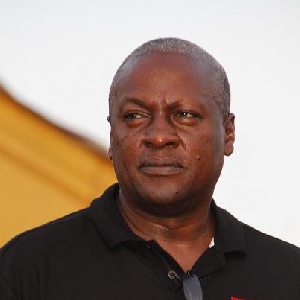“The Days of Promises are Over, Be a man of Action”, “Our take home pay cannot take us home”, “Give the Ghanaian worker a living wage”, “Workers are facing unprecedented hardships”, “Mr. president, the dumso-dumso must end”.
These were some of the inscriptions on the placards that were carried by workers participating in this year’s National May Day parade held at the Essipong Sports Stadium in Sekondi yesterday.
Speaking to DAILY GUIDE in separate interviews, some of the workers indicated that yesterday’s May Day celebration presented the opportunity for them to make known to the president some of their concerns.
According to some of them, workers in Ghana were tired of the many promises the current NDC government, led by President John Mahama, continued to make to Ghanaians and that because they could not meet the President one-on-one to make their grievances known, they decided to write them on their placards.
About 18 national unions including some organizations in the Western Region marked this year’s National May Day celebration.
The participating groups included the Maritime and Dock Workers Union, Ghana National Association of Teachers, Teachers and Educational Workers Union of Ghana, Ghana Manganese Company Limited, Audit Service, Takoradi Flour Mills Limited, State Housing Corporation and Health Service Workers Union.
The others were the Railway Workers’ Union, the Ghana Private Road Transport Union, Public Service Workers Union, Timber Wood Workers Union, and Local Government Workers Union among others.
The theme for this year’s celebration was “Pension: It’s Your Right and Your Responsibility”.
Addressing the gathering, Brother Kofi Asamoah, Secretary General of the Trade Union Congress (TUC) mentioned that it was regrettable to note that Ghana ranked among the lowest on the African continent, in terms of pay levels.
“We live in a country where some top officials managing some parastatal organizations are earning over GH¢20,000 per month while some Ghanaians are earning less than GH¢150 per month”, he noted.
Pensions
He disclosed that out of the about 1.6 million people in Ghana who were above the age of 60, only six per cent of them were benefitting from the Social Security and National Insurance Trust (SSNT) pension scheme.
He added that the remaining 1.5 million did not have any form of pension and that most of them were surviving below the national poverty line of GH¢2 a day.
He indicated that it was indeed a big shame to the nation to allow its senior citizens to be reduced to paupers, adding that those citizens should at least have the right to decent retirement and pension after a long period of toil and suffering.
“We challenge your Excellency and your government to make social protection of our senior citizens one of your priorities during your term in the highest office of the land. We believe Ghana has enough resources to take good care of all old people in the country”, he emphasized.
The New Pension Law
Brother Kofi Asamoah revealed that the new pension law had introduced a three-tier pension in the country. He explained that a worker could join a third tier pension scheme as an individual or as a group.
“This means, in addition to the SSNIT pension, you can earn more retirement income from the second and the third tier pension schemes during retirement,” he told the workers.
Single Spine Pay Policy
According to the TUC Secretary General, the single spine pay policy was designed to reduce inequality within and across public sector institutions and to enhance public sector pay under the control of government through the Fair Wages and Salaries Commission.
He noted that it was sad to note that public sector pay had now become the target of incessant attacks from some politicians who attributed everything that had gone wrong in the country to the single spine pay policy, ranging from government’s inability to pay road and building contractors to the high budget deficit.
“Our proposal is that all public office holders specified under both articles 71 and 190 of the 1992 constitution must be placed on the same salary structure,” he stressed.
President John Dramani Mahama indicated that the implementation of the single spine pay policy had increased the salaries of public sector workers.
“We are all witnesses to the remarkable improvements that have been achieved through its implementation”, he indicated.
He mentioned that government therefore expected labour to reciprocate the increases in wages and salaries with higher levels of productivity and not agitation and strike actions. The President, however, conceded that there were some implementation challenges and outstanding issues which needed to be addressed.
General News of Friday, 3 May 2013
Source: dailyguideghana.com













